Trans healthcare has imporoved in Wales with a “Mini-GIC” in every healthcare district. In Wales, there are seven healthcare districts.
Details are hard to find online often because text is hidden in a PDF which is more like a photograph, so search engines can’t read them easily, if at all.
But with the magic of the right IT tools, I am able to sort that issue so here is the text of the Welsh trans healthcare procedures. Note that some diagrams are shown as text, to see them it would be better to look at the original PDF rather than what I show below.
What I am trying to achieve here is to make people aware that this much-improved system exists and should be rolled out across England. In terms of population, if this system was followed in England, London for example would have TWENTY clinics, Birmingham would have six and Hampshire would have three. Bristol would have one with the need of a second clinic in the not to distant future.
These stats prove how poor trans healthcare is – we have just seven to serve ALL of England + a new trial clinic (Indigo) in Manchester.
The Welsh trans healthcare model needs to be rolled out across England as a matter of urgency – this is the way forward!
UPDATE SINCE MY TWEET: I have just been informed (24/4/21) that (in part because of Covid) the service in Wales is not fully operational.
However, Indigo (which is based on a similar model) is and are already achieving great results, with some patients being seen in just a few weeks and being prescribed hormones within 8 weeks or so.
THE WELESH DOCUMENT READS THUS:
Specialised Services Commissioning Policy: CP182a
Policy
Gender Identity Service for Adults (Non-Surgical)
March 2020
Version 3.0
Document information
Document purpose Policy
Document name Gender Identity Service for Adults (Non-Surgical)
Author Welsh Health Specialised Services Committee
Date First Published 01/04/2011
Date of First Revision 25/09/2012
Date of Second Revision date September 2019
Revision Date March 2020
Commissioning Team Mental Health and Vulnerable Groups
Target audience Chief Executives, Medical Directors, Directors of Finance, Chief Pharmacists, Directors of Primary Care
Description NHS Wales will routinely commission this specialised service in accordance with the criteria described in this policy
Document No CP182a
Review Date 2022
Contents
Policy Statement 5
Disclaimer 5
1. Introduction 6
1.1. Background 6
1.2. Plain language summary 6
1.3. Aims and Objectives 7
1.4. Epidemiology 7
1.5. Current Treatment 8
1.6. New Treatment 8
1.7. What NHS Wales has decided 8
1.8. Relationship with other documents 8
2. Criteria for Commissioning 9
2.1. Inclusion Criteria 9
2.1.1. For referral to Welsh Gender Team (WGT) by GP 9
2.1.2. For continued treatment by WGT 9
2.2. Exclusion Criteria 9
2.3. Continuation of Treatment 10
2.4. Acceptance Criteria 10
2.5. Patient Pathway (Annex i) 10
2.6. New referrals 11
2.6.1. Assessment process for newly-referred individuals 11
2.7. Requests for transfers of care from the Gender Identity Development Service for Children and Young People 11
2.8. Complex patients 11
2.9. Physical examination 12
2.10. Shared decision making 12
2.11. Capacity and informed consent 12
2.12. Loss of fertility 12
2.13. Preparation for surgery for the treatment of gender dysphoria 12
2.14. Conclusion of contact with the Welsh Gender Team or Gender Identity Clinic 13
2.15. Designated Centre 13
2.16. Exceptions 13
2.17. Clinical Outcome and Quality Measures 14
3. Evidence 15
3.1. References 15
3.2. Date of Review 15
4. Equality Impact and Assessment 16
5. Putting Things Right: Raising a Concern 17
5.1. Raising a Concern 17
5.2. Individual Patient Funding Request (IPFR) 17
Annex i: Patient Pathway 18
Annex ii Codes 21
Annex iii: New Referrals 22
Annex iv: Transfers from the Gender Identity Development Service for Children and Young People 23
Annex v: Assessment and Diagnosis 25
Annex vi: Checklist 28
Annex v: Abbreviations and Glossary 29
Policy Statement
Welsh Health Specialised Services Committee (WHSSC) will commission a Gender Identity Service for Adults (Non-Surgical) for people with in accordance with the criteria outlined in this document.
In creating this document WHSSC has reviewed this clinical condition and the options for its treatment
Disclaimer
WHSSC assumes that healthcare professionals will use their clinical judgment, knowledge and expertise when deciding whether it is appropriate to apply this policy.
This policy may not be clinically appropriate for use in all situations and does not override the responsibility of healthcare professionals to make decisions appropriate to the circumstances of the individual patient, in consultation with the patient and/or their carer or guardian.
WHSSC disclaims any responsibility for damages arising out of the use or non-use of this policy.
1. Introduction
This policy has been developed for the planning and delivery of an adult gender identity service (non-surgical) for people resident in Wales aged 18 years and over. This service will only be commissioned by the Welsh Health Specialised Services Committee (WHSSC) and applies to residents of all seven Health Boards in Wales.
This policy recognises and respects diversity in gender identity and its expression. It recognises that there are other identities than the traditional (binary) associated with ‘man’ and ‘woman’, and that gender diverse people (who are known by a variety of other names, including non-binary, trans-feminine, trans-masculine, Genderqueer, non-gender, intersex and others) who meet the criteria for access to the NHS Wales pathway of care should have access to treatment and described in this document that is equitable to the access available to people with binary identities.
1.1. Background
Over the last few years the demand for gender services has increased, this led to the Health Secretary of Wales making a decision that a service needed to be developed in Wales. Up until 31st March 2019, patients within Wales with gender dysphoria had been referred to the London Gender Identity Clinic for assessment and treatment.
This new service has been developed in collaboration with the All Wales Gender Identity Partnership Group and engagement has taken place with service users and stakeholders. Following an options appraisal the gender identity service for adults in Wales has been developed.
The gender identity service for adults in Wales has been designed to reduce waiting times, deliver care as close to home as possible, provide better access to hormone prescribing and improve patient experience.
This commissioning policy updates the WHSSC Specialised Services Policy: CP21, Specialised Adult Gender Identity Services (2012).
1.2. Plain language summary
The term used to describe a discrepancy between birth-assigned sex and gender identity is gender incongruence, this term is preferable to the formerly-used terms of gender identity disorder and transsexualism. Gender incongruence is frequently, but not universally, accompanied by the symptom of gender dysphoria.
The current version of the International Statistical Classification of Diseases and Related Health Problems identifies ‘transsexualism’ (ICD 10 code F64) as “a disorder characterized by a strong and persistent cross- gender identification (such as stating a desire to be the other sex or
frequently passing as the other sex) coupled with persistent discomfort with his or her sex (manifested in adults, for example, as a preoccupation with altering primary and secondary sex characteristics through hormonal manipulation or surgery)”1.
The Diagnostic and Statistical Manual of Mental Disorders (v5, 2013) states that Gender Dysphoria is not, in itself, a mental health condition, reflecting contemporary professional opinion2.
1.3. Aims and Objectives
The aim of this service is to define the requirements and standard of care essential for delivering gender identity services for people with gender dysphoria.
The objectives of this document are to:
• detail the specification required to deliver the gender identity service for adults (non-surgical) who are resident in Wales
• ensure minimum standards of care are met for the delivery of an adult gender identity service (non-surgical)
• ensure equitable access to adult gender identity service (non- surgical)
• improve outcomes for people accessing the adult gender identity service (non-surgical)
1.4. Epidemiology
There is no official data on the number of people in Wales who present with a degree of gender variance. Difficulties in assessing prevalence are exacerbated by the limited evidence base. There is considerable variation in reported prevalence due to factors such as:
• variable data reporting by providers
• differences in diagnostic thresholds applied and inconsistent terminology
• the methodology and diagnostic classification used
• the year and country in which the studies took place.
Thus there is considerable variation in estimates, and the absence of reliable prevalence data exacerbates the challenges in planning and commissioning gender identity services. What is consistent across the literature is a recognition of the significant rise in the number of people pursuing treatment options and the increased incidence of expressed need.
1 WHO | International Classification of Diseases, 11th Revision (ICD-11)
2 https://www.psychiatry.org/psychiatrists/practice/dsm
1.5. Current Treatment
Current treatment is provided by the Tavistock & Portman NHS Foundation Trust Gender Identity Clinic in London.
1.6. New Treatment
This policy outlines a new pathway in Wales that will bring treatment closer to home and reduce waiting times for patients.
1.7. What NHS Wales has decided
The Welsh Health Specialised Services Committee will commission a Gender Identity Service for Adults (Non-Surgical) for welsh patients with gender dysphoria in-line with the criteria identified in the policy.
1.8. Relationship with other documents
This document should be read in conjunction with the following documents:
• NHS Wales
o All Wales Policy: Making Decisions in Individual Patient Funding requests (IPFR).
• WHSSC policies and service specifications
o Specialised Fertility Services Commissioning Policy CP38 WHSSC CP38
• NHS England
o NHS England Service Specification for Gender Identity Services for adults – surgical interventions
• Other published documents
Royal College of Psychiatrists, Good Practice Guidelines for the assessment and treatment of adults with gender dysphoria
o The World Professional Association for Transgender Health (WPATHWPATH World Professional Association for Transgender Health https://www.wpath.org) Standards of care for the Health of Transsexual, Transgender and Gender Non-Conforming People
2. Criteria for Commissioning
The Welsh Health Specialised Services Committee approve the funding of a gender identity service for adults (non-surgical) for transgender people with gender dysphoria, in-line with the criteria identified in the policy.
2.1. Inclusion Criteria
2.1.1. For referral to Welsh Gender Team (WGT) by GP
The WGT will receive referrals from the registered GP of individuals. The individuals will be 17.5 years of age or over, who may have gender dysphoria that is a consequence of their gender identity being incongruent with their visible sex characteristics and/or the social role, typically associated with those characteristics (gender incongruence). Subsequent treatment will only be accessed by individuals who have been diagnosed with gender dysphoria. Whilst referrals can be made from 17.5 years, individuals will not be seen by the WGT until they are 18 years old or over.
2.1.2. For continued treatment by WGT
The WGT will undertake a specialised assessment for people who may have gender dysphoria, work with them to identify the most appropriate diagnostic coding and agree a treatment plan. If the diagnosis is that the individual does not have gender dysphoria as a consequence of gender incongruence, the provider will advise the individual and referrer on alternative services that might meet the individual’s health and well-being needs.
2.2. Exclusion Criteria
Patients resident in Wales but registered with a GP practice in England are not eligible for the service. Refer to England/Wales NHS Cross-border Healthcare Services: Statement of values and principles for further guidance3.
Referrals will not be accepted for individuals who are not registered with a GP given the benefits to the individual of ongoing support from their GP, particularly after discharge from the care of the specialist team.
Requests for any the procedures which are outside of WHSSC planned services can be considered by the All Wales IPFR panel. Please refer to the All Wales IPFR Policy.4
3 https://www.england.nhs.uk/wp-content/uploads/2018/11/cross-border-statement-of- values-and-principles.pdf
4 http://www.whssc.wales.nhs.uk/individual-patient-funding-requests
2.3. Continuation of Treatment
Healthcare professionals are expected to review a patient’s health at regular intervals to ensure they are demonstrating an improvement to their health due to the treatment being given.
If no improvement to a patient’s health has been recorded then clinical judgement on the continuation of treatment must be made by the treating healthcare professional in conjunction with the patient. This may occur at any stage in the patient pathway.
2.4. Acceptance Criteria
The service outlined in this specification is for patients ordinarily resident in Wales, or otherwise the commissioning responsibility of the NHS in Wales. This excludes patients who whilst resident in Wales, are registered with a GP practice in England, but includes patients resident in England who are registered with a GP Practice in Wales.
2.5. Patient Pathway (Annex i)
The key components of the pathway include:
• Direct referral from GP
• Assessment (as part of a MDT and not Mental Health Services)
• Psychological support for patients
• Signposting to relevant services
• Assessment for hormone therapy
• Referral to an NHS England Gender Identity Clinic for complex cases5 and for chest and genital reconstruction surgery assessment
• Central access for support and advice for other professionals
The pathway will support the development of a longer term model that increases capacity, knowledge and competency within primary care so more of the service can be delivered by Local Health Boards. It will also help to progress the development of the Welsh Gender Team to increase the skills of the team and repatriate more patients with the aim of eventually providing a specialised Gender Identity Clinic in Wales.
The delivery model relies on access to specialist Gender Identity Services via primary care, and the principle of multidisciplinary and interdisciplinary teams and networks who work and collaborate in the provision of care.
The Welsh Gender Team and NHS England Gender Identity Clinic will assess and diagnose individuals and arrange for referrals to other
5 The complexity of a case is determined by the skills, experience and competency of the Welsh Gender Team to deliver effective treatment for that individual at that point in time. The criteria by which the Welsh Gender Team define a complex case may change as their skills, experience and competency increase over time.
services, including for medical and surgical treatments. Access to surgical intervention is only by referral from the Welsh Gender Team or NHS England Gender Identity Clinic that is commissioned by NHS England compliant with this policy.
2.6. New referrals
New referrals will be made directly from the person’s registered GP to the Welsh Gender Team, using the online form available on the Welsh Clinical Communications Gateway (WCCG): Welsh Gender Service.
2.6.1. Assessment process for newly-referred individuals
The Welsh Gender Team (WGT) will:
• undertake a specialised assessment for people who may have gender dysphoria
• work with them to identify the most appropriate diagnostic coding
• agree a treatment plan.
If the diagnosis is that the individual does not have gender dysphoria as a consequence of gender incongruence, the Provider will advise the individual and referrer on alternative services that might meet the individual’s health and well-being needs (see Annex v).
2.7. Requests for transfers of care from the Gender Identity Development Service for Children and Young People
A request for transfer of care may be made by the designated Gender Identity Development Service (GIDS) for children and young people to a Gender Identity Clinic before the young person’s 18th birthday. This may be appropriate where joint working between the two services, including joint consultations with the young person, within a “lead-in” period is beneficial to ensure a timely and effective eventual transfer once the young person has reached 18 years of age.
Both the GIDS and current NHS England Adult Gender Identity Clinic are provided by the same provider. This enables a seamless transition, with a coordinated approach between the two services at the most appropriate time for the individual. This may vary as it may be more-timely to complete the assessment process within the one before transferring to another. In either case, this will not disadvantage any persons. Joint transition clinics and MDT discussions between two services will take place to aid these discussions and decisions (see Annex IV).
2.8. Complex patients
Patients with complex needs should be referred by the WGT to the NHS England Gender Identity Clinic for assessment and treatment.
2.9. Physical examination
Physical examination, other than the measurement of height, weight and blood pressure will not be performed routinely during the assessment process.
2.10. Shared decision making
Shared Decision Making is a process in which individuals, when they reach a decision point in their health care, can review all the treatment options available to them and participate actively with their healthcare professional in making that decision. The Clinician will provide individuals with the necessary information so that they may ask questions regarding their care and treatment plans which best suits their needs and preferences, and is clinically appropriate.
2.11. Capacity and informed consent
The Clinician must make all efforts to ensure that individuals are aware of the longer-term consequences of the interventions offered to them. The consequences of treatment decisions can be significant and life- changing.
The process of obtaining informed consent is an important aspect of ethical assessment and intervention, including the emotional, social and factual issues, so as to enable the individual to make informed decisions about the treatment options, benefits, material risks, and the alternatives to the treatments proposed (including the option of having no treatment). Individuals must be given sufficient time to reflect on the clinical advice and the potential treatment options before deciding what is best for them. Clinicians should be mindful that it is possible that individuals may lack capacity.
2.12. Loss of fertility
The individual should be provided with early advice about the likely impact of medical interventions to physical health. The WGT will provide a general description of the options for conservation of fertility. Where appropriate the WGT with the individual’s consent, will make a referral to a fertility service for cryopreservation of eggs or sperm for use in future fertility treatment (gamete storage).
2.13. Preparation for surgery for the treatment of gender dysphoria
Referrals for surgical interventions will be made by the Welsh Gender Team (WGT) in compliance with NHS England’s service specification for Gender Identity Services – Surgical Interventions which describes the specialist surgical procedures that are commissioned by NHS England for the treatment of gender dysphoria.
Before a referral for surgery is made, the WGT Clinician will meet with the individual to review current treatment interventions, and to assess the individual’s needs and readiness for the surgical intervention. The processes of shared decision making and of obtaining consent (see section 2.11) will provide the individual with necessary information to enable them to make an informed decision on the treatment options, and the associated risks and benefits. This will also allow them sufficient time to ask questions, and to reflect on the advice given. At this stage the possibility of the need for donor site hair removal, and the likely implications for the timing of surgery, should be explained to the individual.
2.14. Conclusion of contact with the Welsh Gender Team or Gender Identity Clinic
Individuals will be discharged from the care of the Welsh Gender Team or Gender Identity Clinic:
• at an individual’s request
• when the individual and Clinician agree that treatment for gender dysphoria is complete, and not less than six months after completion of the last planned intervention (the purpose of such follow-up is to assess the longer-term impact of interventions)
• in accordance with the Provider’s access policy.
2.15. Designated Centre
The Service Provider for the Welsh Gender Team is Cardiff & Vale University Health Board. The Welsh Gender Team will be based at:
St David’s Hospital Cowbridge Road East Canton
Cardiff CF11 9XB
The Local Gender Teams base will be determined by each Local Health Board.
2.16. Exceptions
If the patient does not meet the criteria for treatment as outlined in this policy, an Individual Patient Funding Request (IPFR) can be submitted for consideration in line with the All Wales Policy: Making Decisions on Individual Patient Funding Requests. The request will then be considered by the All Wales IPFR Panel.
If the patient wishes to be referred to a provider outside of the agreed pathway, an IPFR should be submitted.
Further information on making IPFR requests can be found at: Welsh Health Specialised Services Committee (WHSSC) | Individual Patient Funding Requests
2.17. Clinical Outcome and Quality Measures
The Provider must work to written quality standards and provide monitoring information to the lead commissioner.
The centre must enable the patient’s, carer’s and advocate’s informed participation and to be able to demonstrate this. Provision should be made for patients with communication difficulties.
The providers will be expected to monitor against the full list of Quality Indicators derived from the service description components described in Section 3.1 of the WHSSC service specification CP182b Gender Identity for Adults (non-surgical).
In particular, the provider will be expected to monitor against the following target outcomes:
• Waiting times of no longer than 26 weeks (from referral to first appointment). This will not apply in year the first year of the Welsh Gender Team
• Referrals acknowledged by WGT within 14 days, with notification sent to referrer and patient.
• Patient letters (including treatment plans) sent within 28 days of the respective appointment.
3. Evidence
WHSSC is committed to regularly reviewing and updating all of its commissioning policies based upon the best available evidence of both clinical and cost effectiveness.
Evidence has been drawn from a variety of sources in the development of this pathway including engagement with the transgender community and an outcomes appraisal.
3.1. References
• Welsh Government Transgender Action Plan https://gov.wales/topics/people-and-communities/equality- diversity/rightsequality/transgender/?lang=en
• Operational Research Report following visits and analysis of gender identity clinics in England https://www.england.nhs.uk/commissioning/wp- content/uploads/sites/12/2015/11/gender-ident-clncs-rep-nov15.pdf
• Experiences of people from, and working with, transgender communities within the NHS- summary of findings, 2013/14 https://www.england.nhs.uk/commissioning/wp- content/uploads/sites/12/2015/11/gend-ident-clnc-exprnc-rep- nov15.pdf
• NHS England service specification https://www.england.nhs.uk/wp- content/uploads/2018/10/Gender-identity-services-for-adults-non- surgical-interventions.pdf
• Good Practice Guidelines for the assessment and treatment of adults with gender dysphoria https://www.rcpsych.ac.uk/docs/default- source/improving-care/better-mh-policy/college-reports/college- report-cr181.pdf?sfvrsn=5ba8dd13_2
• The World Professional Association for Transgender Health (WPATH)Standards of care for the Health of Transsexual, Transgender and Gender Non-Conforming People https://www.wpath.org/publications/soc
3.2. Date of Review
This document is scheduled for review before 2022, where we will check if any new evidence is available. If no new evidence or intervention is available the review date will be progressed.
If an update is carried out the policy will remain extant until the revised policy is published.
4. Equality Impact and Assessment
The Equality Impact Assessment (EQIA) process has been developed to help promote fair and equal treatment in the delivery of health services. It aims to enable Welsh Health Specialised Services Committee to identify and eliminate detrimental treatment caused by the adverse impact of health service policies upon groups and individuals for reasons of race, gender re-assignment, disability, sex, sexual orientation, age, religion and belief, marriage and civil partnership, pregnancy and maternity and language (Welsh).
This policy has been subjected to an Equality Impact Assessment.
The Assessment demonstrates the policy is robust and there is no potential for discrimination or adverse impact. All opportunities to promote equality have been taken.
In addition, the service provider will be required to complete an Equality Health Impact Assessment.
5. Putting Things Right: Raising a Concern
5.1. Raising a Concern
Whilst every effort has been made to ensure that decisions made under this policy are robust and appropriate for the patient group, it is acknowledged that there may be occasions when the patient or their representative are not happy with decisions made or the treatment provided.
The patient or their representative should be guided by the clinician, or the member of NHS staff with whom the concern is raised, to the appropriate arrangements for management of their concern.
If a patient or their representative is unhappy with the care provided during the treatment or the clinical decision to withdraw treatment provided under this policy, the patient and/or their representative should be guided to the LHB for NHS Putting Things Right. For services provided outside NHS Wales the patient or their representative should be guided to the NHS Trust Concerns Procedure, with a copy of the concern being sent to WHSSC.
5.2. Individual Patient Funding Request (IPFR)
If the patient does not meet the criteria for treatment as outlined in this policy, an Individual Patient Funding Request (IPFR) can be submitted for consideration in line with the All Wales Policy: Making Decisions on Individual Patient Funding Requests. The request will then be considered by the All Wales IPFR Panel.
If an IPFR is declined by the Panel, a patient and/or their NHS clinician has the right to request information about how the decision was reached. If the patient and their NHS clinician feel the process has not been followed in accordance with this policy, arrangements can be made for an independent review of the process to be undertaken by the patient’s Local Health Board. The ground for the review, which are detailed in the All Wales Policy: Making Decisions on Individual Patient Funding Requests (IPFR), must be clearly stated
If the patient wishes to be referred to a provider outside of the agreed pathway, and IPFR should be submitted.
Further information on making IPFR requests can be found at: Welsh Health Specialised Services Committee (WHSSC) | Individual Patient Funding Requests
Commissioning Policy CP182a, Gender Identity Service for Adults (Non-Surgical)
Annex i: Patient Pathway
Patient presents to GP
No
Gender Diagnosis
2nd appointment
Referral received & screened
1st appointment
Complex Case?
Yes
indicated
No
Yes
(if required)
Gender re-assignment surgery indicated
Psychological support required? (available throughout pathway)
Agree if Complex Case
Yes
Yes
Speech & Language Therapy required?
Any problems or issues? Yes
No
Yes
Any problems or issues?
Patient presents to GP
*Consider co-morbid mental health diagnoses and refer to PMHCT/CMHT as appropriate
Referral made by Registered GP
No
Complex
Gender Diagnosis
Case? Yes
indicated
No
Yes
Gender re-assignment surgery indicated
Psychological support if required (available throughout pathway
Agree if Complex Case
Yes
Yes
Speech & Language Therapy required
Any problems or issues? Yes
No
Yes
Any problems or issues?
Annex ii Codes
ICD-10 Codes *
Code Category Code Description
ICD-10 F64.0 Transsexualism
ICD-10 F64.1 Dual-role transvestism
ICD-10 F64.2 Gender identity disorder of childhood
ICD-10 F64.8 Other gender identity disorders
ICD-10 F64.9 Gender identity disorder, unspecified
ICD-10 F66.0 Sexual maturation disorder
ICD-10 F66.1 Egodystonic sexual orientation
*ICD 11 has not yet been adopted. On adoption, this policy will be updated to include the relevant ICD 11 codes including the new code HA60 ‘Gender Incongruence in Adulthood’.
Annex iii: New Referrals
Referrals may be made to the WGT by General Practitioners (GP) using the online form available on the Welsh Clinical Communications Gateway (WCCG): Welsh Gender Service.
Referrals will be acknowledged by the Welsh Gender Team in writing with the referrer and individual within 14 days.
The following is an overview of the type of information required by the referral template:
• a description of the individual’s experience of gender dysphoria, including duration
• a summary of significant physical and mental health history
• history of substance misuse
• forensic history
• the individual’s current medication use (prescribed, self- medication, recreational)
• details of any other agencies involved
• basic biometrics (height, weight, Body Mass Index, blood pressure)
Annex iv: Transfers from the Gender Identity Development Service for Children and Young People
The Gender Identity Development Service (GIDS) is commissioned to provide care and support for young people up to 18 years of age and provided by Tavistock and Portman NHS Foundation Trust.
The objective of the transfer is a purposeful, planned movement of adolescents and young adults from a young person’s service into an adult-oriented service. A well planned transfer should focus on the needs of the individual and should provide coordinated, un-interrupted care and support to avoid negative consequences. The parents, carers and other family members will also value support, information and guidance in the process of transfer. There are therefore compelling reasons for close cooperation, communication and mutual support between the specialist team in the Gender Identity Development Service for children and young people and specialist teams in adult services.
Although the transfer to adult services will not be made until the young person is aged at least 17 years, a request for transfer of care may be made by the young person’s service to the adult service before the young person’s 18th birthday but they will only be seen by the WGT on or after their 18th birthday. This may be appropriate where joint working between the two services, including joint consultations with the young person, within a “lead-in” period is beneficial to ensure a timely and effective eventual transfer or to determine if a transfer to adult services is appropriate at that time.
Young people who have completed a diagnostic assessment in the young person’s service will not be re-assessed for diagnosis in the adult service. The adult service will be provided with the relevant diagnostic codes and agreed treatment plan, including the medical treatment plan if the young person is receiving endocrine interventions, and as part of the process for transfer the adult service will agree arrangements for continued prescribing.
Individualised risk management procedures should be in place and agreed across both services, particularly for more vulnerable young people or those with more complex needs.
In cases where the young person fulfils the diagnosis for gender dysphoria but does not yet have a definitive treatment plan either because they are wanting to explore options more fully, or have related very complex or psychosocial issues that mean physical interventions are not yet appropriate, the process of transfer may be likely to take longer and will require ongoing collaboration and planning between the young person’s service and the adult service focused on the needs of the
individual. The nature of the individualised plan will differ according to needs, but may necessitate a joint transition clinic in appropriate cases.
By the age of 18 years the different outcomes may be:
• where a diagnosis of gender dysphoria as a consequence of gender incongruence has been made, an agreed plan for transfer to adult gender dysphoria services has been achieved
or
• where a diagnosis of gender dysphoria as a consequence of gender incongruence has not been made, a referral to an adult gender dysphoria service for an assessment of diagnosis, or for access to specific time- limited psychological therapies
or
• discharge from the young person’s service and no transfer or referral to adult gender dysphoria services when this is clinically appropriate.
Annex v: Assessment and Diagnosis
The WGT will undertake a specialised assessment for people who may have gender dysphoria, agree with them the most appropriate diagnostic coding and agree a treatment plan. If the diagnosis is that the individual does not have gender dysphoria as a consequence of gender incongruence, the WGT will advise the individual and referrer on alternative services that might meet the individual’s health and well- being needs.
The majority of individuals will have two core assessment consultations; at least one of the consultations will be face-to- face. Baseline laboratory investigations and physical measurements (height, weight, and blood pressure) may be requested during the assessment, if these are consistent with the individual’s treatment objectives.
First Appointment – Initial assessment consultation
This consultation will be conducted by a regulated health professional (or by a supervised trainee). Information will be collected about:
• the individual’s objectives for their engagement with the service
• their gender identity and expression (current and historic), and
• basic bio-psycho-social history.
It is recognised that patients may be at different stages in their transition and it may be appropriate for some patients to also discuss treatment planning during the first appointment or surgical options dependent on individual circumstances and point of readiness.
Second Appointment – Diagnostic and treatment planning consultation
This consultation will be conducted by a medical practitioner or clinical psychologist (or by a supervised trainee). Information from the referrer and the initial consultation, together with any investigation results, will be reviewed and further explored with the individual. Diagnostic coding will be discussed and agreed with the individual. The individual’s treatment goals will be discussed and agreed. A general assessment of capacity to consent to treatment will be made.
A written treatment plan, with indicative timelines, will be discussed and agreed with the individual and shared with the GP and Local Gender Team. The treatment plan may recommend that the individual progress to a treatment process. Other outcomes may include a recommendation to the referrer or GP that the individual be referred to other services, or that a referral should be deferred to a later date because of other health or social issues that would prevent the individual from currently
benefiting from the interventions. All outcomes will be carefully explained to the individual.
It is recognised that some patients may need more/less diagnostic and treatment planning consultations depending on their individual circumstances and point of readiness.
Follow up appointments – additional assessment consultations
A minority of individuals have additional needs such that more than two core assessment consultations may be appropriate. This may include people with co-existing physical or mental health problems, communication difficulties or learning difficulties. In these circumstances, the clinician should explain to the individual the reason for the proposed additional consultations.
Family members
The provider should not insist that the individual gives permission for family members or other people to attend appointments jointly with the individual. If a clinician advises the individual that it would be beneficial for a family member or other person to jointly attend an appointment, the reasoning should be explained to the individual and reassurance given that a refusal to give permission will not prejudice the individual’s assessment or ongoing treatment.
Assessment of patients who have been granted a Gender Recognition Certificate
The Gender Recognition Act 20046 enables a trans-person to apply to the Gender Recognition Panel to receive a Gender Recognition Certificate. Individuals who are granted a full Gender Recognition Certificate are considered in the eyes of the law to be of their acquired gender and they are entitled to all the rights appropriate to a person of their acquired gender.
An individual with a Gender Recognition Certificate will already have obtained a clinical diagnosis of gender dysphoria (as that is a requirement for the granting of a Gender Recognition Certificate). As such, the assessment and diagnosis element of the individual’s contact with the WGT will be adjusted to reflect the existing diagnosis of gender dysphoria.
Possession of a Gender Recognition Certificate does not in itself provide the multi- disciplinary team with the clinical information that is necessary to assess an individual’s suitability and readiness for the medical and other health interventions that are available along the NHS pathway of
6 https://www.legislation.gov.uk/ukpga/2004/7/contents
care. As such, individuals with a Gender Recognition Certificate will be assessed for readiness of interventions, including surgical interventions, as otherwise described in this service specification and will include the individual’s:
• expectations of the interventions and how they will impact upon them socially and psychologically
• health history
• understanding of the interventions and their potential benefits, risks and limitations
• support network and strategies for thriving after the intervention
• plans for preparation and aftercare following intervention.
Annex vi: Checklist
Gender Identity Service for Adults (non-surgical)
The following checklist should be completed for every patient to whom the policy applies:
• Where the patient meet the criteria and the procedure is included in the contract and the referral is received by an agreed centre, the form should be completed and retained by the receiving centre for audit purposes.
• The patient meets the criteria and is received at an agreed centre, but the procedure is not included in the contract. The checklist must be completed and submitted to WHSSC for prior approval to treatment.
• The patient meets the criteria but wishes to be referred to a non contracted provider. An Individual Patient Funding Request (IPFR) Form must be completed and submitted to WHSSC for consideration.
• If the patient does not meet the criteria for treatment as outlined in this policy, an Individual Patient Funding Request (IPFR) can be submitted for consideration in line with the All Wales Policy: Making Decisions on Individual Patient Funding Requests. The request will then be considered by the All Wales IPFR Panel.
Annex v: Abbreviations and Glossary
Abbreviations
AWGIPG All Wales Gender Identity Partnership Group
WGT Welsh Gender Team
LGT Local Gender Team
IPFR Individual Patient Funding Request SMC Scottish Medicines Consortium WHSSC Welsh Health Specialised Services MDT Multi-disciplinary Team
DES Direct Enhanced Service
GIDS Gender Identity Development Service
EQiA Equality Impact Assessment
Glossary
Individual Patient Funding Request (IPFR)
An IPFR is a request to Welsh Health Specialised Services Committee (WHSSC) to fund an intervention, device or treatment for patients that fall outside the range of services and treatments routinely provided across Wales.
Welsh Health Specialised Services Committee (WHSSC)
WHSSC is a joint committee of the seven local health boards in Wales. The purpose of WHSSC is to ensure that the population of Wales has fair and equitable access to the full range of Specialised Services and Tertiary Services. WHSSC ensures that specialised services are commissioned from providers that have the appropriate experience and expertise. They ensure that these providers are able to provide a robust, high quality and sustainable services, which are safe for patients and are cost effective for NHS Wales.




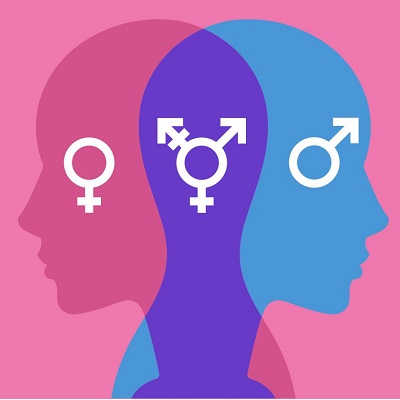
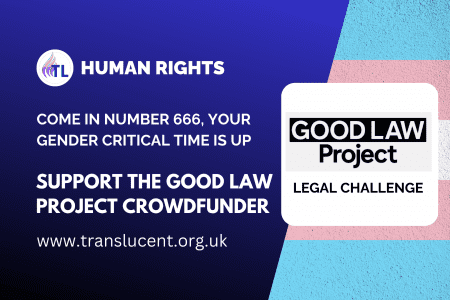
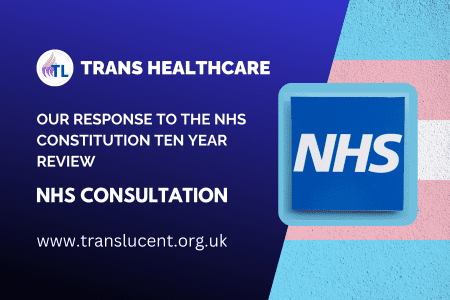
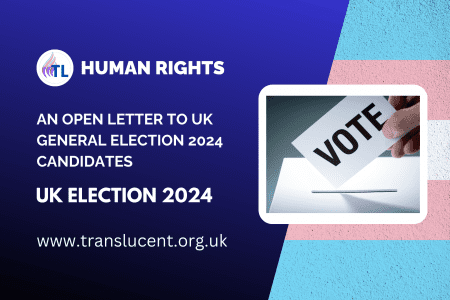
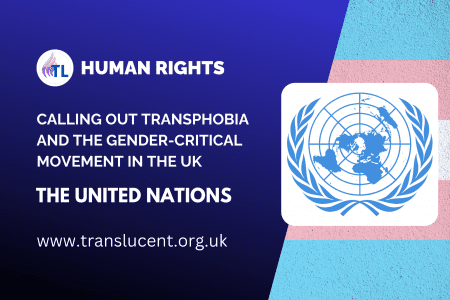
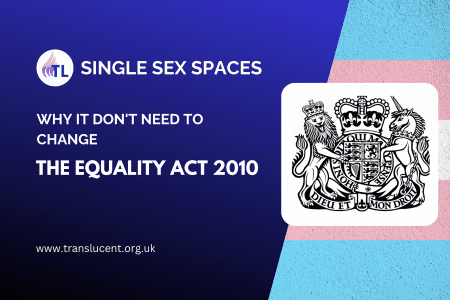

 To provide the best experiences, we use technologies like cookies to store and/or access device information. Consenting to these technologies will allow us to process data such as browsing behaviour or unique IDs on this site. Not consenting or withdrawing consent, may adversely affect certain features and functions.
To provide the best experiences, we use technologies like cookies to store and/or access device information. Consenting to these technologies will allow us to process data such as browsing behaviour or unique IDs on this site. Not consenting or withdrawing consent, may adversely affect certain features and functions.